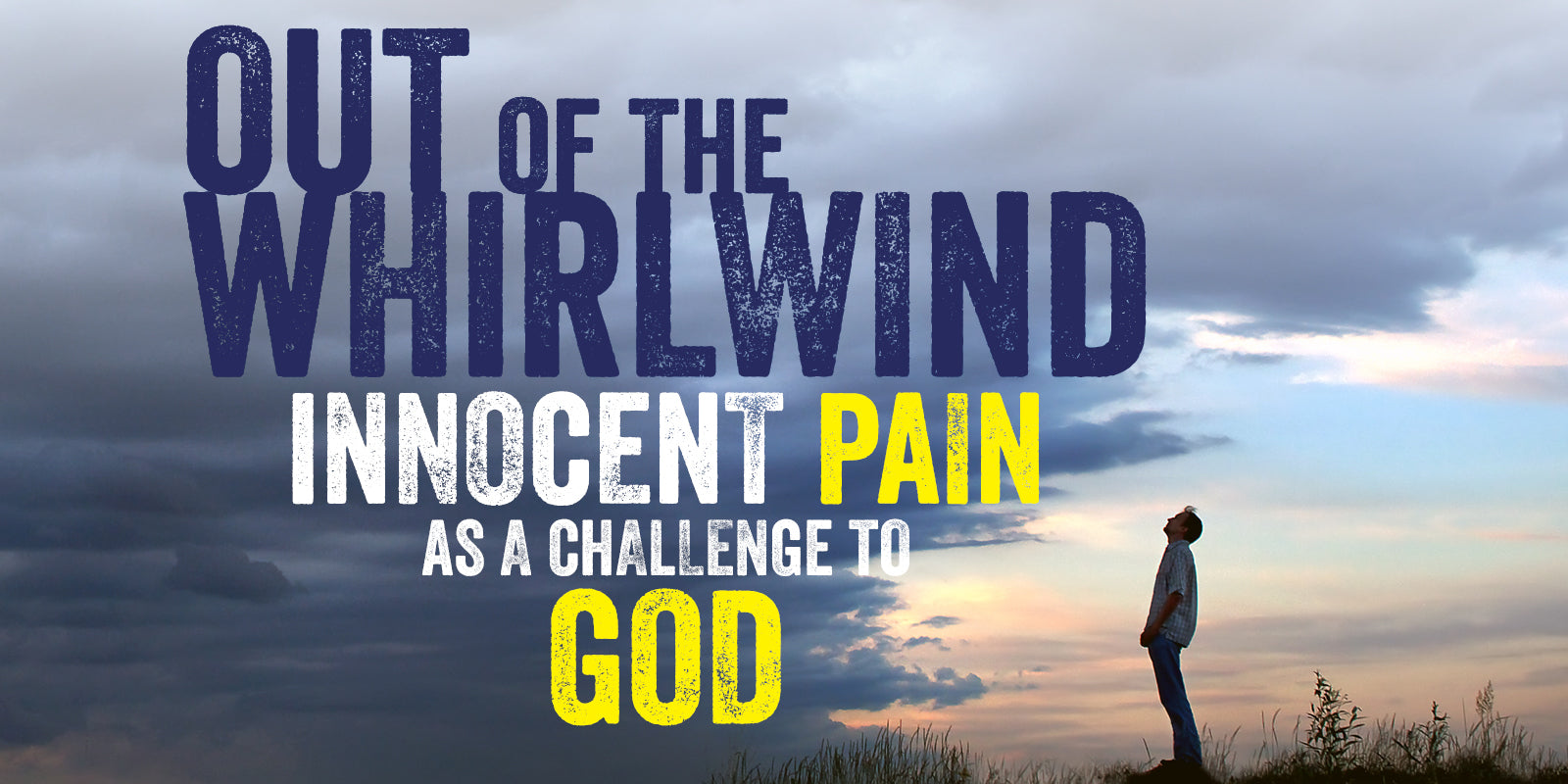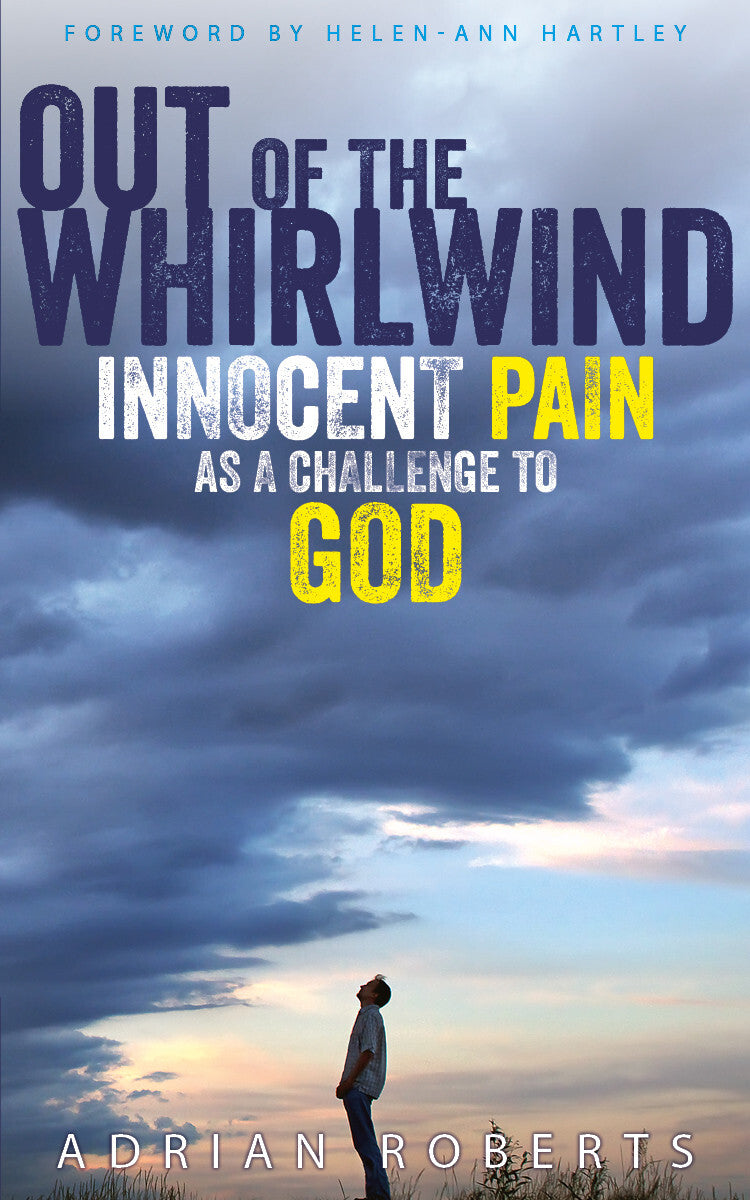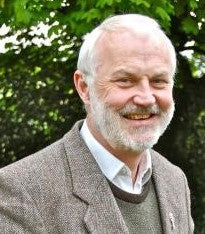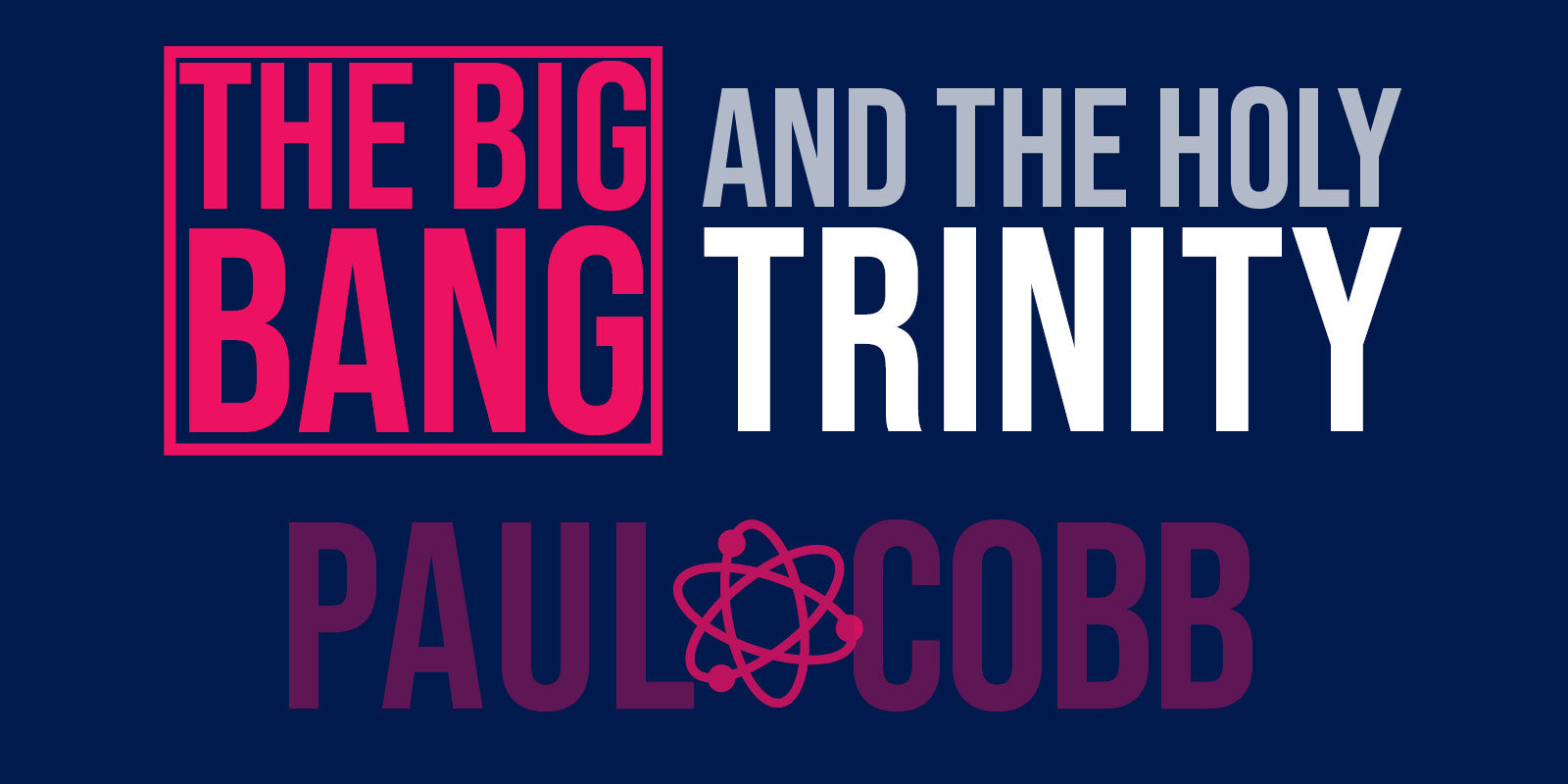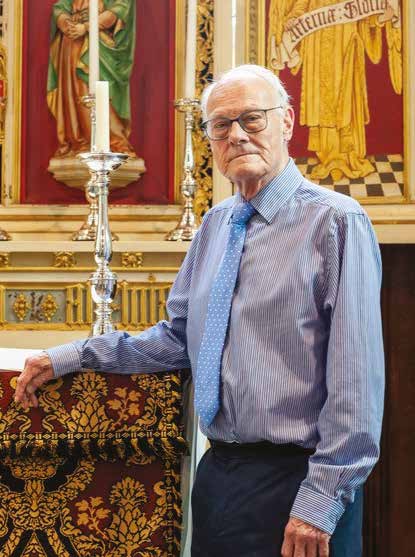GUEST BLOG: As part of our October #ThemeOfTheMonth Adrian Roberts, author of Out of the Whirlwind, contemplates the problem suffering poses to belief in a good God and shares his personal experience of making peace with the reality of suffering and pain.
Theology has its fashions like everything else, but those ancient questions which have always troubled the hearts and lives of believers never go away, and one of the toughest of these is the problem of evil and suffering.
It’s generated by belief in a good, creator God responsible for everything, which presumably includes all the bad stuff which happens. Those who remain faithful to this belief are denied any recourse to notions such as Karma, or a belief in many gods, or even to the idea that the divine is so far beyond us that our categories of ‘good’ and ‘evil’ make no sense. We are left with the so-called ‘inconsistent’ triad of God’s goodness and power, combined with extreme evils and the sufferings which often follow. Perhaps God isn’t good, or powerful, perhaps just non-existent.
Our ancestors were much more comfortable than many today with suffering understood as a punishment for sin: we all owe God a death anyway, and any joys we experience in this life are a bonus. I wouldn’t want to rule out the possibility that some of the things we suffer may be teaching us a lesson, shocking us into making changes to our lives, but as a complete explanation, the idea is surely monstrous.
More popular today is talk of our lives as a ‘vale of soul-making’: it is only through challenging experiences that our characters can develop. Again, this has some merit, but less so in at least two situations: some sufferings are so terrible that the sufferer seems to have their character blighted and diminished by the experience rather than otherwise. Secondly, what of the sufferings of animals, or of humans who are so mentally incapacitated that it’s hard to see what benefit they may be deriving from the experience?
Popular too today is the ‘free will defence’ as a way of explaining the damage and suffering caused by the wickedness and stupidity of others. It is said that even a powerful God could not give us the freedom to make choices while at the same time guaranteeing that we always made the right choice. This does make sense, but only of those sufferings clearly caused by others. For the rest, the gift of sentience and conscious awareness seem merely to heighten the risk of agony to our lives in such a fragile world as this one.
All these thoughts, hardly new but still always relevant, struck me forcibly some years ago as I sat in a children’s ward beside my mentally and physically disabled teenage son Hal, as he experienced a series of uncontrollable and life-threatening seizures. Here was surely an example of entirely unmerited and meaningless suffering, caused by no human action, but by some random accident in the womb. The immediate crisis was simply a focal point in a life which so far had been characterised by levels of pain and distress apparently greater than those in an average childhood, but it provided a powerful concentration to my heart and mind.
Hal emerged from the crisis with no lasting harm, but of course his underlying condition remained. What sense could be made of this in the context of a faith in God?
I am still not sure, but I have found the following reflections to be helpful.
When God answered Job ‘out of the whirlwind’ in the Hebrew Bible, he made the point that a full understanding of why the world has to be as it is must be beyond the grasp of a limited creature such as a human. That surely makes sense, but it is very far from the cop-out it might appear to be. For I have come to realise that grand, over-all explanations are not needed. All I needed to do was to make some sense of my own experience.
And I made sense of it by considering that my role in life was not to complain about my own difficulties (such as they were), but in this case at least, devote my energies to being there for Hal, and ensuring that he is properly cared for as my own strength gradually fades with age. As far as one can tell, as long as he is cherished, loved, kept clean, comfortable and entertained, his quality of life can be as good as anyone’s. He is capable of both showing and appreciating affection. Any suffering is there more to be relieved than explained.
Not only is any grand picture beyond my competence to make sense of, but I am only responsible for my own particular story, which includes how I relate to Hal. That is one of the challenges I have been given to deal with. It is not for me to try to make sense of other people’s stories, which will very often include challenges and difficulties I can only guess at, and which may appear to be very much worse than anything I have ever faced.
Even Hal’s story is a mystery to me: he has a relationship with the God who loves him, and with those others who care for him, which is his story alone, and his joys and sorrows in this life are not for me to presume to make sense of.
Adrian Roberts is a retired teacher of Religious Studies and former Lay Chaplain at the Grammar School at Leeds, UK. He has two grown-up sons, Theo and Hal (who features in Out of the Whirlwind) and lives in a rural area near Ripon, North Yorkshire with his wife Emily, nine hens and a cat. His book Out of the Whirlwind is being featured as part of our October #ThemeOfTheMonth: Responses to Suffering – get your copy here!
